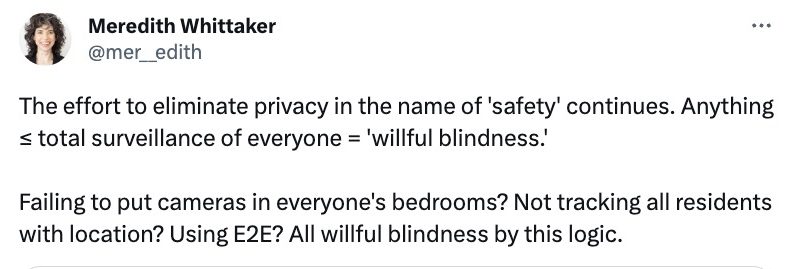Ignoring the fact that end-to-end encryption is protected by the First Amendment, a bipartisan legislative effort is under way in the US to pass a bill that would undermine end-to-end encryption (E2E) on social media and other internet services.
This is being explained as necessary for the Drug Enforcement Administration (DEA) to more effectively enforce its drug policies but would kill private messaging for everyone.
The act is named after Cooper Davis, a young fentanyl victim who made his purchase via Snapchat. The legislation’s name itself looks like it was carefully chosen to deflect attention from the anti-privacy implications in its provisions, and make the debate based more on emotional appeal.
We obtained a copy of the bill for you here.
If the US legislators have their way with this one, companies behind social media would not only have to be sure they have “actual knowledge” that illegal, drug-related activities are taking place on their platforms, but inform DEA about it.
The information required here would include the names of suspected social networks’ users, but also other personal data.
But there’s more – a company that fails to adhere to these requirements will be found to have done this deliberately – the wording is literally, “deliberately blinded (themselves).”
And inclusion of end-to-end encryption – which preserves security and privacy on the internet by keeping third party actors out of people’s communications – can be interpreted as an online provider “deliberately blinding themselves.”
Since we’re dealing with mostly Big Tech-owned platforms, it’s a reasonable fear that if forced to choose between destroying encryption or losing money to fines/having their interests harmed otherwise by the government, these corporations might choose the former option.
A number of privacy advocate groups are worried that this definition will in fact directly target encryption. They also state what should by now be common knowledge – that encryption is not some evil that stands in the way of law enforcement doing their job, but a piece of necessary internet infrastructure that protects people from security risks, but also from surveillance and spying.
Apps that market themselves for strong encryption, like Signal, were quick to react negatively to the news of the bills, with the president of the Signal-backing foundation, Meredith Whittaker, pointing out to the overbroad language open to all sorts of (ab)uses.

“Failing to put cameras in everyone’s bedrooms? Not tracking all residents with location? Using E2E? All willful blindness by this logic,” Whittaker wrote on Twitter.



